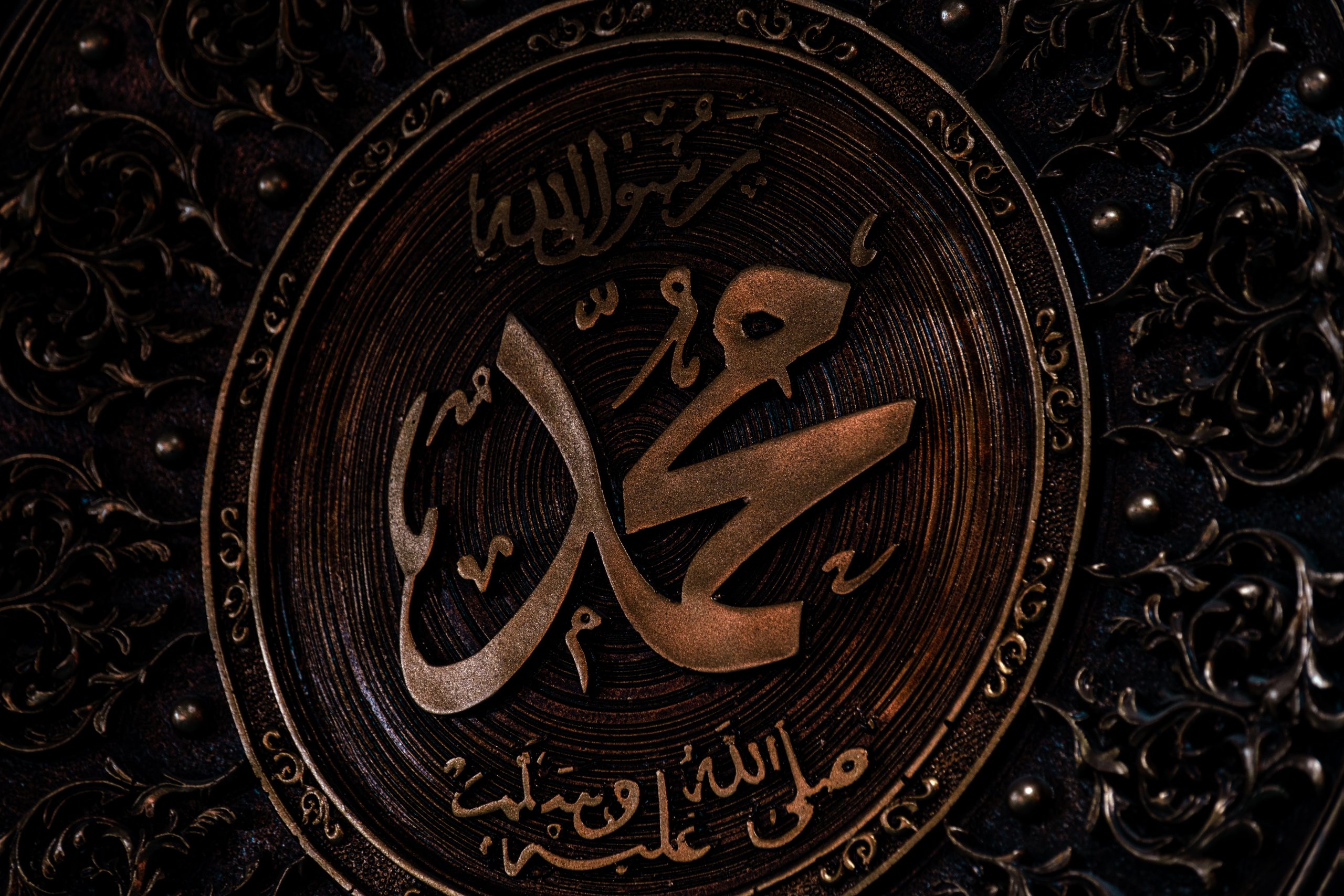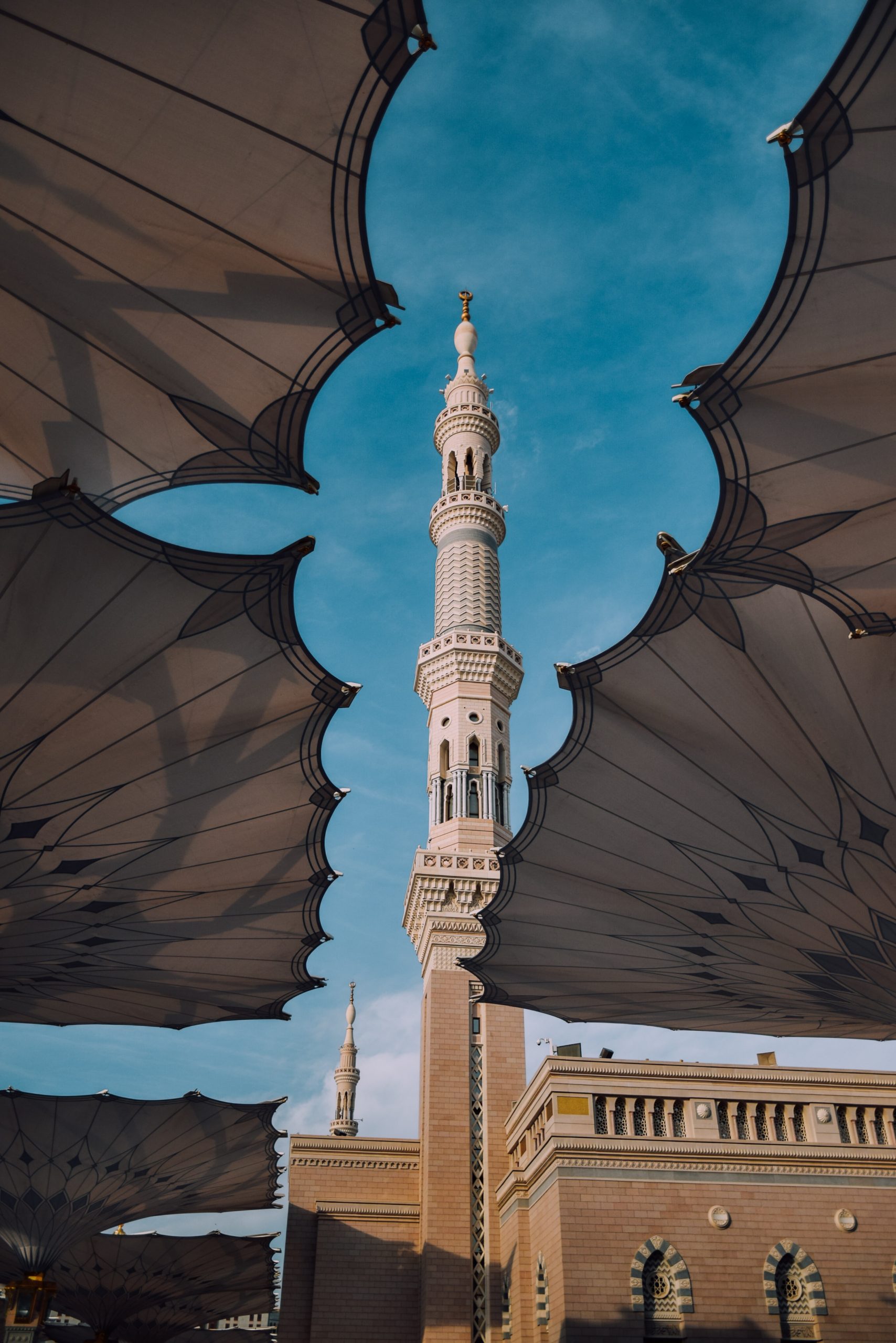#Islam
From The Chaplain’s Desk: Expressing Love For The Prophet

Published

Alḥamdulillāh, we are currently in the lunar month of Rabīʿ al-Awwal, the month in which our beloved master and leader, the seal of prophets and messengers, the best of the first and the last, the most perfect example of a human being to walk on the face of the earth, our beloved Muḥammad ﷺ was born. Whenever the month of Rabīʿ al-Awwal comes, it has become a custom in Muslim communities throughout the world to organize and have lectures, programs, seminars, conferences, and gatherings commemorating and celebrating the life and legacy of the Prophet ﷺ. These gatherings, lectures, and programs are organized as an expression of love and reverence for the Prophet ﷺ.
However, as Muslims, it’s important for us to realize that our way of life, our dīn, is unique and special. We don’t express our love for the Prophet ﷻ like other religious traditions celebrate and honor their figures. We’re not necessarily taught to celebrate his birth or remember him on his death. The way we express love for the Prophet ﷺ is by following his example and his teachings; by bringing his Sunnah to life in our daily lives. Our love for the Prophet ﷺ is supposed to be real, something that comes from the heart and expresses itself in our actions. Our love for the Prophet ﷺ is not simply lip service or commemorating certain events. Our love for the Prophet ﷺ is supposed to be a longing desire to be like him and be in his company. Ibn Ḥajar 

A Love Greater Than for Our Ownselves
Having love for the Prophet ﷺ is part of our faith, it’s an essential part of our īmān.
The Prophet ﷺ told us, “Whoever possesses the following three characteristics has tasted the sweetness of faith.” The first thing he mentioned is to love Allah ﷻ and His Messenger ﷺ more than anyone and anything else in this world. The Prophet ﷺ also said, “None of you will truly believe until I’m more beloved to him than his father, his children, and all of mankind.” [Sahih al-Bukhari 21]
Keep supporting MuslimMatters for the sake of Allah
Alhamdulillah, we're at over 850 supporters. Help us get to 900 supporters this month. All it takes is a small gift from a reader like you to keep us going, for just $2 / month.
The Prophet (SAW) has taught us the best of deeds are those that done consistently, even if they are small. Click here to support MuslimMatters with a monthly donation of $2 per month. Set it and collect blessings from Allah (swt) for the khayr you're supporting without thinking about it.
Meaning, that in order for our faith to be complete, in order to be true believers, we are supposed to love the Prophet ﷺ more than anyone and anything else in this world, even more than our parents and children.
Sometimes this concept is difficult to understand. How can we love the Prophet ﷺ more than our parents? How can we love him more than our children? How can we love him more than our wives? How can we love him more than ourselves? We’ve never seen him, spoken to him, sat with him, shared a meal with him, or interacted with him.
Although we have not been blessed to be in the physical company of the Prophet ﷺ in this world, we can still be in his company figuratively. His entire life has been meticulously documented for us by those who loved him the most, the Companions [ranhuma]. We have detailed reports of exactly what he looked like; his height, build, stature, skin color, the size of his eyes, the color of his pupils, the shape of his face, nose, jaw, hairstyle, the color of his hair, the length of his beard, the width of his hands, and even how many grey hairs he had. We know how he dressed, spoke, ate, slept, walked, and interacted with all segments of society. Every single detail of his life, both public and private, is available to us. Reading these details nurtures and develops a love for him within our hearts.
Initially, this concept of loving the Prophet ﷺ more than anyone else in the world was even difficult for some of the companions of the Prophet ﷺ to realize. Once ʿUmar 
The Companions: Ultimate Manifestation of Love for The Prophet 
There are two types of love: 1) Natural (al-Ḥub al-Ṭabʿī) and 2) Acquired (al-Ḥub al-Ikhtiyārī) Natural love comes from human nature; it’s something that all of us are born with; it’s an intrinsic force of attraction that exists between people. This is a type of love that is hardwired into our DNA. For example, the love that we have for our parents or our children.

PC: Ahmet Kuram (unsplash)
Acquired love is something that is voluntary, a love that’s the result of choice after reflection and understanding. It is to fall in love with someone because of certain qualities they possess or favors they have done for us. It’s when we choose to love a person for a reason It requires us to plant the seed of affection in our hearts, nurture it, take care of it, and allow it to grow and blossom. That is the type of love we are supposed to nurture and develop for the Prophet ﷺ.
The Companions [ranhuma] had developed this deep, pure love for the Prophet ﷺ. That’s why when we look at their lives we find that they expressed their love for the Prophet ﷺ in ways that are difficult for us to understand. They followed his teachings and emulated his example to an extent that’s unparalleled in history. History has never seen a man who has overwhelmed the hearts through his noble character like the Prophet ﷺ. His Companions used to say to him, “We don’t say to you what the people of Mūsa said to Mūsa 

During the battle of Uḥud, the Muslims initially had the upper hand but once the archers left their post the tide of the battle completely changed. The Muslim army fell into disarray and confusion and then a rumor spread that the Prophet ﷺ had been killed. This demoralized some of the Companions sucking the life out of them. Others then engaged in battle with more enthusiasm. During this time of disarray, the Prophet ﷺ had nine companions with him; seven from the Anṣār and two from the Muhājirūn. The Prophet ﷺ was being attacked from all angles and these seven men went forward to defend the Prophet ﷺ. Each one of them was martyred one after the other until only the two Muhājirs remained, Ṭalḥah ibn ʿUbaidillah 

Ṭalḥah 



There’s no other human being in history who was shown this level of love, respect, and loyalty. They were willing to sacrifice their lives for the safety and protection of their beloved Prophet and Messenger ﷺ. The only factor that could drive a person to undergo such sacrifice is unconditional love.
When the Muslim army returned to Madinah, one of the women of the Anṣār was told that her father was martyred. She said, “To Allah 


After the battle of Badr, Zaid ibn al-Dathna 

The lives of the Companions of the Prophet ﷺ are the ultimate manifestation of love for the Prophet ﷺ. That’s why when ʿAlī 

That’s the type of love we’re supposed to work towards. Their love for the Prophet ﷺ transformed them, filled their hearts with light, and enriched their souls. They were transformed into the best human beings to walk on the face of this earth, the likes of which history had never witnessed before and will never witness again. The reality of the love of the Prophet ﷺ is that it motivates one to do what is pleasing to Allah ﷻ.
We have to ask ourselves, who do we truly love? We claim to love the Prophet ﷺ, but what does that mean? How does it show in our lives? How much do we know about him? Do we follow his example in how we live our lives? True love is manifest through following his example and by doing so we as Muslims can also be transformed. The Companions realized that the objective of loving the Prophet ﷻ was to have it show in their actions by following his teachings.
Steps to Cultivate Love for The Prophet 

PC: Yasmine Arfaoui (unsplash)
I will end by sharing three practical steps we can take to nurture, cultivate, and develop love for the Prophet ﷺ in our hearts.
1. Learn about him – It is impossible to love someone without knowing who they are. When we love someone, we try our best to learn every single detail of their life. We try to learn about their favorite food, color, activities, likes, and dislikes. It is extremely important for each of us to learn about the life and person of the Prophet ﷺ. All of us should be intimately familiar with his life story. We should be familiar with his Sīrah and the various lessons that can be derived from it. I encourage everyone to read a Sīrah book cover to cover and re-read it every so often. We should also be familiar with his appearance, habits, and character, which can be learned through the various works of Shamā’il. Every Muslim should be intimately familiar with the life and person of the Prophet ﷺ.
I recommend the following books of Sīrah:
a) Noble Life of the Prophet by Dr. Sallaabee (https://amzn.to/2IWdVpP)
b) Prophet of Mercy by Sh. Abul Hasan Ali Nadwi (https://tinyurl.com/4wn5y3vr)
c) The Sirah of the Prophet: A Contemporary and Original Analysis by Yasir Qadhi (https://tinyurl.com/74fk6jaz)
I recommend the following books of Shamā’il:
a) al-Shamā’il al-Muḥammadiyyah by al-Tirmidhī (r) (https://tinyurl.com/wb3samtx)
b) A Mercy to the Universe (https://tinyurl.com/2p85zm8t)
c) In the Company of the Prophet by Sh. Salman Al-Oadah
d) Prophet Muhammad the Teacher by Sh. Abd al-Fattāḥ Abū Ghuddah
2. Follow his Sunnah – The Prophet ﷺ is the ideal role model for us to follow in every single aspect of our lives. Allah ﷻ says,
“Indeed for you in the Messenger of Allah is a good example for one who believes in Allah, the last day, and remembers Allah frequently.” [Surah Al-Ahzab – 33;21]
We should try our best to follow his teachings, guidance, instructions, advice, and counsel in everything that we do. This is particularly true for his noble character. We should learn about his kindness, mercy, compassion, forgiveness, patience, forbearance, generosity, humility, simplicity, bravery, courage, and selflessness and try to implement them into our lives. Read a few aḥādīth of the Prophet ﷺ every evening with the intention of putting his teachings into practice. The Prophet ﷺ said, “Whoever obeys me loves me and whoever loves me will be with me in Paradise.” [Jami` at-Tirmidhi 2678]
3. Send salutations and blessing upon him – Every time his name is mentioned we should say, “May Allah’s blessings and safety be upon him.” The Prophet ﷺ said, “Whoever sends one blessing upon me, Allah sends ten upon him.” [Jami` at-Tirmidhi 485] Sending salutations upon the Prophet ﷺ helps cultivate respect, reverence, and love for him in our hearts.
May Allah ﷺ fill our hearts with love for the Prophet ﷺ, allow us to follow in his footsteps, and be in his noble company in the best of abodes!
Related:
– Love the Prophet – Follow Him
– Notes From A Revert: Developing Love For The Prophet ﷺ Without Assigning Divinity
Keep supporting MuslimMatters for the sake of Allah
Alhamdulillah, we're at over 850 supporters. Help us get to 900 supporters this month. All it takes is a small gift from a reader like you to keep us going, for just $2 / month.
The Prophet (SAW) has taught us the best of deeds are those that done consistently, even if they are small. Click here to support MuslimMatters with a monthly donation of $2 per month. Set it and collect blessings from Allah (swt) for the khayr you're supporting without thinking about it.
The IOK Chaplains work for the Institute of Knowledge Chaplaincy Initiative. Formally trained in Islamic seminaries, they work to provide spiritual and pastoral care to Muslim college students in Southern California.


Nationalism And Its Kurdish Discontents [Part II of II]: Kurds And Turkiye After Ottoman Rule

Nationalism And Its Kurdish Discontents [Part I of II]: Kurds In An Ottoman Dusk

Moonshot [Part 10] – The Marco Polo

Moonshot [Part 9] – A Religion For Real Life

Genocidal Israel Escalates With Assault On Iran

Moonshot [Part 10] – The Marco Polo

Moonshot [Part 9] – A Religion For Real Life

Moonshot [Part 8] – The Namer’s House

Moonshot [Part 7] – The Abyss Stares Back

[Podcast] A Riba-Free Future With A Continuous Charity | Faizan Syed

[Dhul Hijjah Series] Calling Upon the Divine: The Art of Du’a (Part 1)

IOK Ramadan 2025: Four Steps | Sh Zaid Khan

IOK Ramadan 2025: Do Your Best | Sh Zaid Khan

IOK Ramadan 2025: Giving Preference to Others | Sh Zaid Khan





